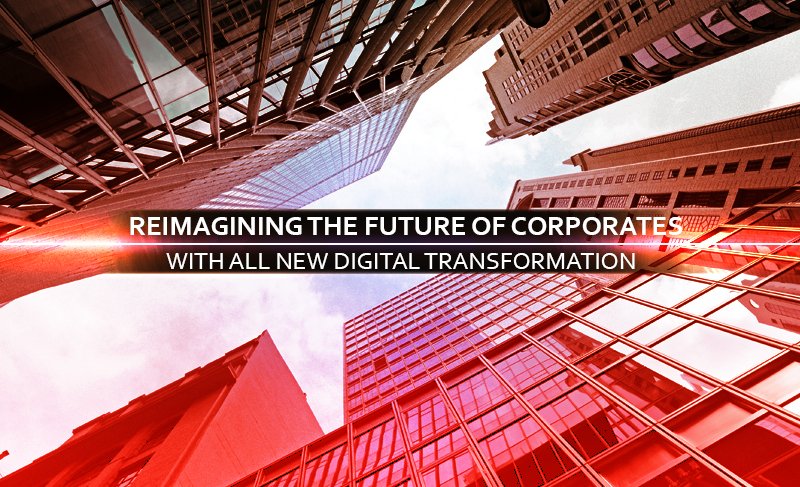
Reimagining the Future of Corporates with all new Digital Transformation
“Digital transformation is not only a process of embedding innovative technologies into all aspects of the business; but also a culture shift and rethinking of the ways an organization must work to remain competitive and profitable in the longer run.”
The world has changed entirely. Since the emergence of the COVID-19 pandemic, things do not remain the same as they used to be earlier.
Organizations have adopted new ways of doing business. Their BCPs (business continuity plans) have evolved. The way companies drive growth has innovated in the ways not many have imagined a few years ago.
Digital transformation has become the new normal. With the rising competition in the market, digitization of business practices has kept the businesses in alignment with their objectives, mission, and vision.
While everything became uncertain in the COVID-19 era, the digital transformation came to the rescue of businesses.
Restrictions such as social distancing and the worldwide lockdown that followed made people’s lives difficult. People find it cumbersome to carry out their everyday tasks; but the corporates, too, face challenges in implementing their daily tasks.
The remote work model got adopted soon; with people caged at home and putting up with daily roles and responsibilities, it became the new normal.
Digital transformation, also known as DT or DX, embeds innovative and emerging technologies into all aspects of business; from daily operations to strategic decision-making.
It involves several business aspects, moving from analog to digital instruments; along with a cultural shift and rethinking of ways of doing business in uncertain times.
According to a recently conducted research, the global spending on it will reach USD 2.4 trillion by 2024.
However, driving digital transformation is not as easy; instead, it involves several factors that drive change, embed digital tools and technology, and carry out business processes.
Customers:
Digital transformation is not a commodity but a process that gets implemented by the C-level executives in the organizations.
Implying the tectonic shifts in the ways organizations build and utilize software; tweak internal operations, and run their businesses, are all possible with the customers’ participation that further drives it.
IT Infrastructure:
IT infrastructure is an integral part of organizations, which forms the core of driving digitization.
The IT infrastructure encompasses hardware, software, digital tools, and technologies that enable organizations to carry out operations and ensure digital transformation digitally.
Moreover, the adoption of available cloud-based tools to operate software builds and seamlessly integrates new applications and data storage and retrieval.
Expertise:
It becomes difficult for organizations to drive digital transformation if they lack the required expertise that results in digitalization.
Research suggests that, of the several business operations, the significant chunk of budgetary allocation goes to hiring the proper expertise that enables organizations to drive digitalization in the most efficient ways.
Digital Channels:
Digital channels are the medium with which digital transformation takes place.
Without digital channels, the process of digitizing the business processes becomes tougher.
Digital channels include the old revenue streams and use new digital media to reach the digital audience by engaging the existing customers and optimizing existing operations.
Leader Group’s digital transformation services are one of a kind. It uses digital technologies to create new or modify existing business processes, culture, and customer experiences to meet changing business and market requirements.
Based on a three-pronged approach of People, Processes, and Technology, Leader Group’s digital transformation services use digital technology to develop new business or adapt existing business processes, culture, and consumer experiences and drive digitalization.
Furthermore, its digital transformation services encompass digital customer experience, organization, business analytics, digital business design, digital technology strategy, governance, risk, and compliance.
These essential elements under digitization help organizations leverage the power of digital tools and technology and drive digital transformation.
Conclusion – Digital Transformation:
Digital is the new normal, and so are the ways of doing business. Organizations are changing, their BCPs (business continuity plans) are evolving, and market disruption is taking place at a pace that we did not anticipate pre-COVID-19 times.
With the exemplary implementation of digital tools and technologies, Leader Group’s digital transformation services enable businesses to attain digitized ways of doing business and remain competitive in the market in such uncertain times.





